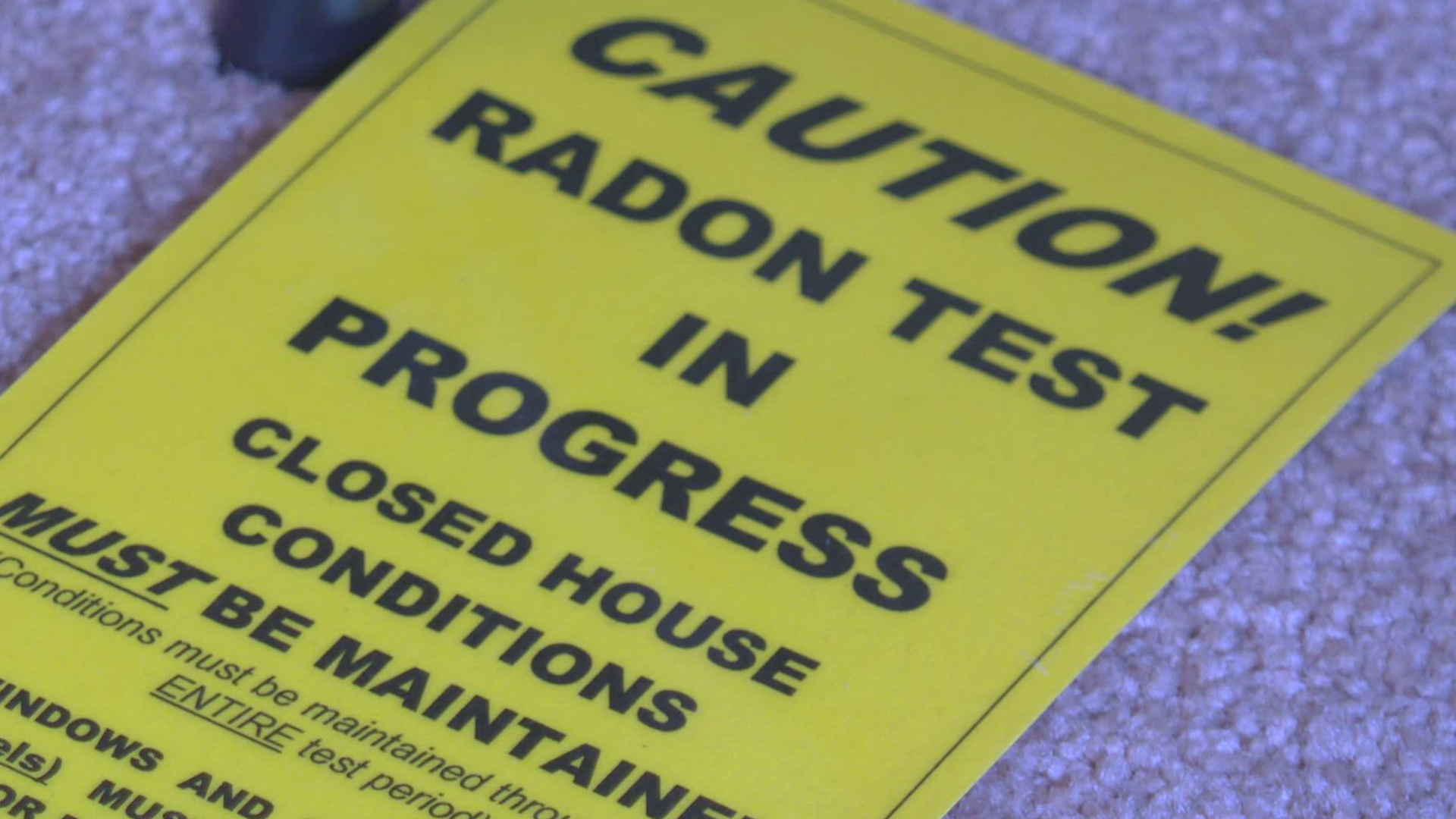PLYMOUTH, Minn. — Since 2020, radon testing done during home sales has gone down 39%, according to the Minnesota Department of Health.
"That's a critical opportunity to find out if you're being exposed to this one carcinogen, and an opportunity to take action to fix it," said Daniel Tranter, the MDH Indoor Air Unit Supervisor.
Tranter said that about half of the testing in Minnesota is done during home sales.
"When you're exposed to right on long term when you breathe in that carcinogen," said Tranter. "For many months and years, it damages our lung cells. And that in turn can lead to lung cancer."
Tranter said that as competition between home buyers rose, many began to opt out of home inspections to make their offers more appealing.
Homefax Radon Services has seen a decline that reflects state numbers.
The small, family business in Plymouth is run by Kathy and Doug Laurent. They do home inspections for buyers, sellers, and families and often test for the sometimes-harmful gas.
"Starting about two years ago, the housing market became so competitive people were foregoing their home inspection," said Doug Laurent. "And of course, they forego their home inspection that also includes the radon testing."
"We spend time in our basement, that's where we have our playroom for our kids, your kids have bedrooms down there, it's really important to test and know if it's at safe levels in your home," said Kathy Laurent.
The Laurents said that while people often associate radon with basements, it can be found on any floor of a home and in low-lying apartments.
While radon tests through professionals are recommended, you can also buy a test and carry out the process yourself. Homes should be tested every two to five years.
According to Tranter, heightened levels of the gas are found in about 40% of homes that have undergone testing in Minnesota.
For more resources on radon testing, visit the MDH website.

